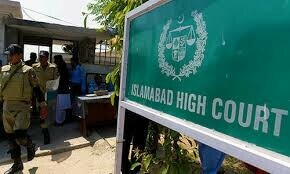ISLAMABAD: Health experts have advised the citizens of the twin cities to take special preventive measures to protect themselves from the dengue virus.
According to the experts, active monitoring and surveillance of natural mosquitoes is necessary, during these days, to check on the spread of the virus.
They said that the staff of the concerned departments should take steps for solid waste disposal, and improve the water storage practices.
They said that the mosquitoes breed primarily in man-made containers, like earthenware jars, metal drums and concrete cisterns, as well as discarded plastic food containers, used automobile tyres and other items that can collect rain water.
Dr Wasim Khawaja, of Pakistan Institute of Medical Sciences (Pims), said that dengue was a mosquito-borne infection, which, in recent years, has become a major public health concern.
He said that the dengue fever was a severe, flu-like illness that affects infants, young children and adults. The spread of dengue is attributed to the expanding geographic distribution of the four dengue viruses and of their mosquito vectors, the most important of which was the predominantly urban species; aedes aegypti.
He said that the rapid growth of urban population is bringing ever greater numbers of people in contact with this vector, especially in the areas that are favourable for mosquito breeding.
The dengue viruses are transmitted to humans through the bites of the infective female aedes mosquitoes, he said, adding that the mosquitoes generally acquire the virus while feeding on the blood of an infected person.
After incubation of the virus for eight to ten days, an infected mosquito is capable of transmitting the virus to susceptible individuals, for the rest of its life, the doctor claimed, saying that the virus circulates in the blood of the infected humans for two to seven days, approximately the same time as the fever.
He added that the clinical features of the dengue fever vary according to the age of the patient.
He said that the infants and young children might have a non-specific febrile illness with rash, as older children and adults might have either a mild febrile syndrome or the classical incapacitating disease with an abrupt onset and a high fever, severe headache, pain behind the eyes, muscle and joint pains, and rashes.
Dr Khawaja said that the dengue haemorrhagic fever was a potentially deadly complication that was characterized by high fever and haemorrhagic phenomena.
He said that the illness commonly begins with a sudden rise in body temperature, accompanied by a facial flush and other non-specific constitutional symptoms of dengue fever.
He said that the fever usually continues for two to seven days, adding that in moderate dengue haemorrhagic fever cases, all signs and symptoms abate after the fever subsides.











































Dear visitor, the comments section is undergoing an overhaul and will return soon.